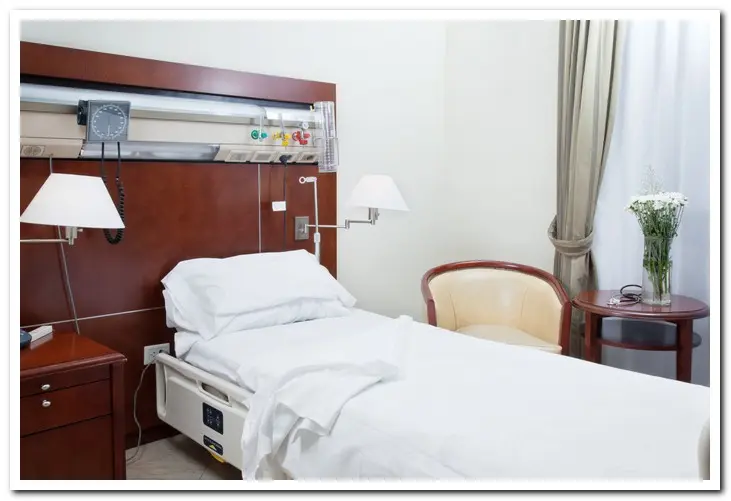The Rehab Process
The Rehab Process
On this page, you will learn how rehab works and the steps in the rehab process.
Drug rehabilitation programs are programs or processes whose main goal is to help individuals heal from addiction to drugs or alcohol. Most people do not know how rehab works or what steps are involved in the drug rehab process. If you would like to speak with a counselor regarding finding a substance abuse treatment center in your town, or anywhere in the USA, please call now.
IMMEDIATE SERVICE
1-800-303-4833

What are the steps of the rehab process?
Drug and alcohol rehabilitation programs are a multi-step process. The main goal of treatment at a drug rehab center is to help patients realize that long-term sobriety is achievable through stable mental health and the overall well-being of the patient. There are 4 major steps in every rehab that include assessment and intake, detoxification, therapy/counseling, aftercare planning, and support. Each step of the rehab process sets the foundation for every step to follow during a person’s stay at a drug rehab center.
Deciding if you need help to overcome addiction
This is actually the first step in the rehabilitation process. Many people do not realize this is the first and most critical step that one can take to get their life back in order. This initial step is one that every person takes multiple times throughout their drug and alcohol addiction. It is very important to listen to ourselves when we think we may need help to overcome our addiction. Without the first and most important step, people would never reach out for help. Sometimes, it may be necessary for a friend or family member to get a professional to help with this process through intervention.

Intake and Assessment
The next step in the rehabilitation process is always the intake and assessment process. This stage of the recovery program is crucial for the counselors to determine which therapy models or detoxification protocols may be needed to ensure a safe and effective program for every patient. In this phase of the program, you may be asked about insurance coverage so the individual will understand the financial obligation they have when enrolling in the program.
After the intake process, the team of therapists, doctors, and counselors develops an individualized treatment plan. This plan will be unique to the individual’s goals and needs while undergoing therapy and treatment for a substance abuse problem. With tailor-made treatment programs, each patient receives a specialized treatment plan designed for their specific needs and circumstances. This will increase the chance of an effective and successful treatment program and increase the odds of long-term sobriety.

Detoxification
Once the intake process is completed, the individual will be moved to the next stage of treatment, which often includes detox. Detox programs are designed to rid the body of the harmful side effects that have developed as a side effect of using drugs or alcohol. Some of these side effects can be dangerous and even life-threatening unless the person gets medical help to handle the withdrawal symptoms.
While a person detoxes from drugs or alcohol, medical professionals monitor and adjust medications to make the process as painless as possible for the patient. The detox professionals monitor the clients 24 hours a day to ensure a safe and comfortable withdrawal program. Medications may be prescribed to help with withdrawal symptoms and mental stability through the detoxification process.
Detox is only one step in the recovery process and should not be mistaken for a standalone treatment plan. Detox programs do not address the underlying issues that led to addiction in the first place. This is done in the next phase of treatment to address the individuals’ psychological, social, and behavioral aspects of treatment. Detox is important but should not be used alone in the treatment of addiction, as it only sets the foundation for the rest of the treatment process.

Therapy, counseling, and sober activities
Once a person has detoxified, the real work can begin through therapy counseling. By relearning to have fun without the need to self-medicate, the patient will greatly benefit from their counselor’s unique perspective on addiction. Most of the counselors you will engage with will have an addictive past they themselves have overcome.
The therapy portion of the rehabilitation process will use some of the tried-and-true therapy models that have helped millions of people overcome addictions just like yours. These therapies include CBT, DBT, family therapy, and motivational interviewing. Individual therapy sessions use various forms of therapy to help make sure that the patient receives a program that will handle the unique needs of the individual.

Aftercare
Aftercare planning is the last step in the recovery process and one of the most important steps to avoid relapses. This step has no end planned, as it takes as long as it takes for each person, which may be different. Several different forms of aftercare are available to those who would like to continue the gains they experienced while enrolling in an inpatient drug rehab program.
Many forms of aftercare are available, including outpatient treatment programs, counseling sessions, group therapy, AA meetings, NA meetings, and other group therapy programs that do not adhere to the 12-step ideology. Some people will choose to have a sober companion or live-in therapist to help with the transition from treatment to their lives back in the real world. Sober companions offer 24-hour support and counseling to help with the inevitable pitfalls of treatment that will arise soon after inpatient treatment has been completed.
This is the basic outline of the treatment process and should not be used as a definitive guide to treatment, as some programs will not adhere to these principles as they are laid out. Some programs will include holistic treatment protocols or strict religious components that may or may not use these exact steps in recovery, but for the most part, these steps are used in 90% of treatment for addiction worldwide.

How We Can Help
If you would like to find out more about the recovery process, do not hesitate to give us a call, and we will help you understand the importance of formal treatment for addiction and how it can help you overcome addiction once and for all. If you are reading this and have decided that rehab is right for you, we are here to help and will give you options for treatment programs that can help you achieve a life without the need for drugs or alcohol to get through the day. Your recovery can start today! The call is free, the information is free, and the advice is free, Call now and see how we can help you make an informed decision as to which type of program may be the best fit for you and your wellbeing.
PLEASE CALL NOW
1-800-303-4833
Sources



 CONTACT FORM: Please fill out our contact form or call to speak to a counselor now.
CONTACT FORM: Please fill out our contact form or call to speak to a counselor now.